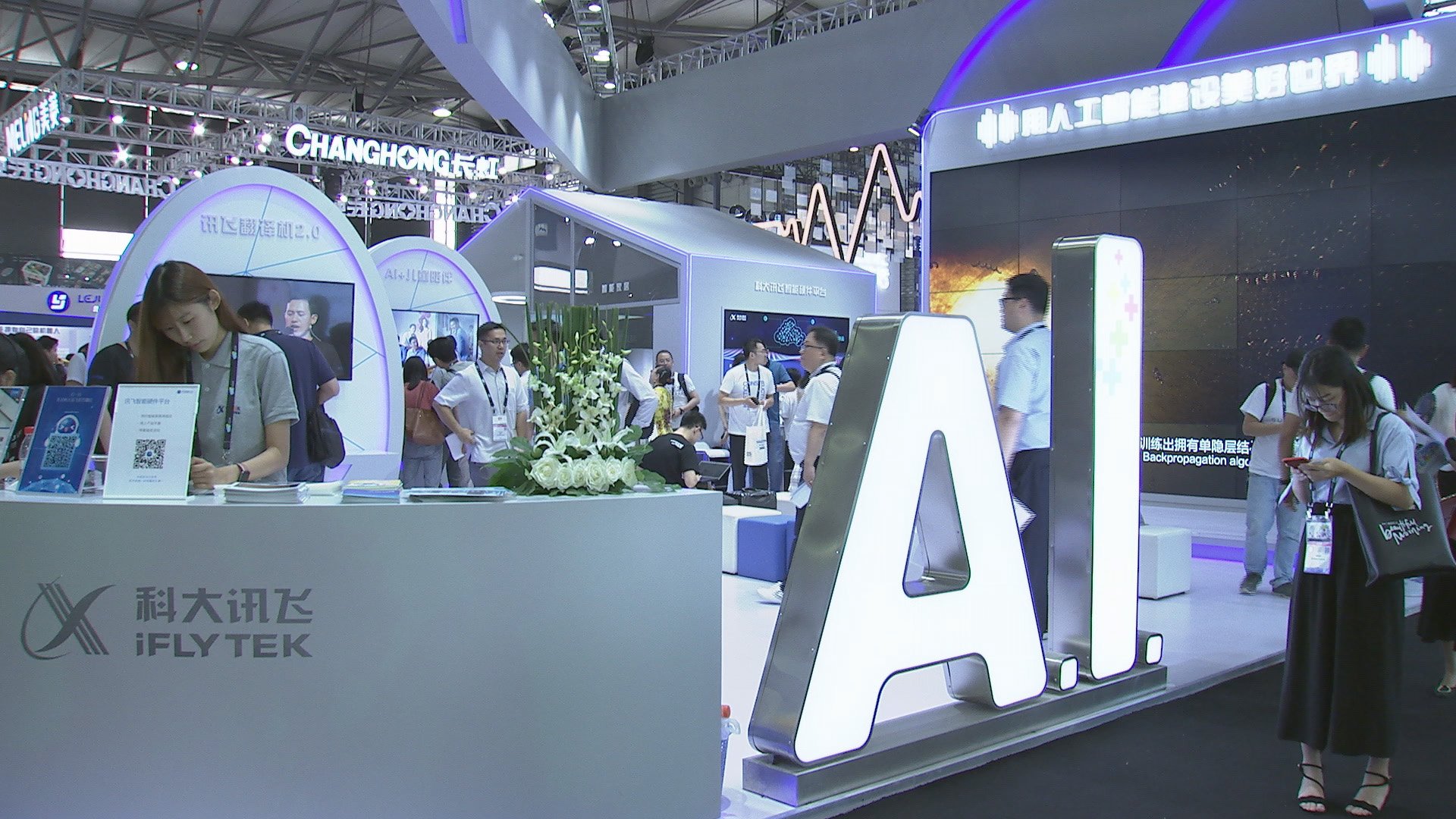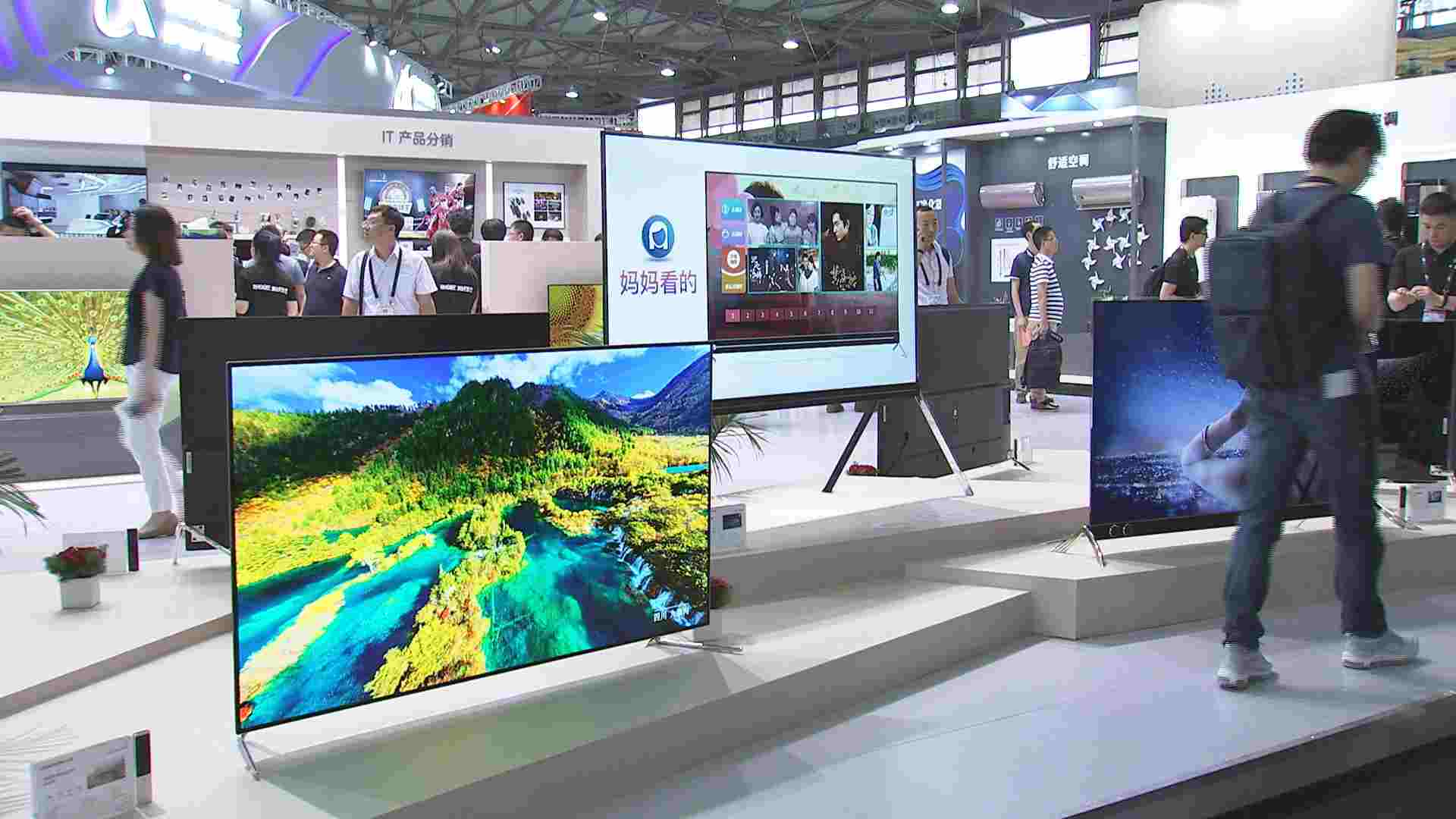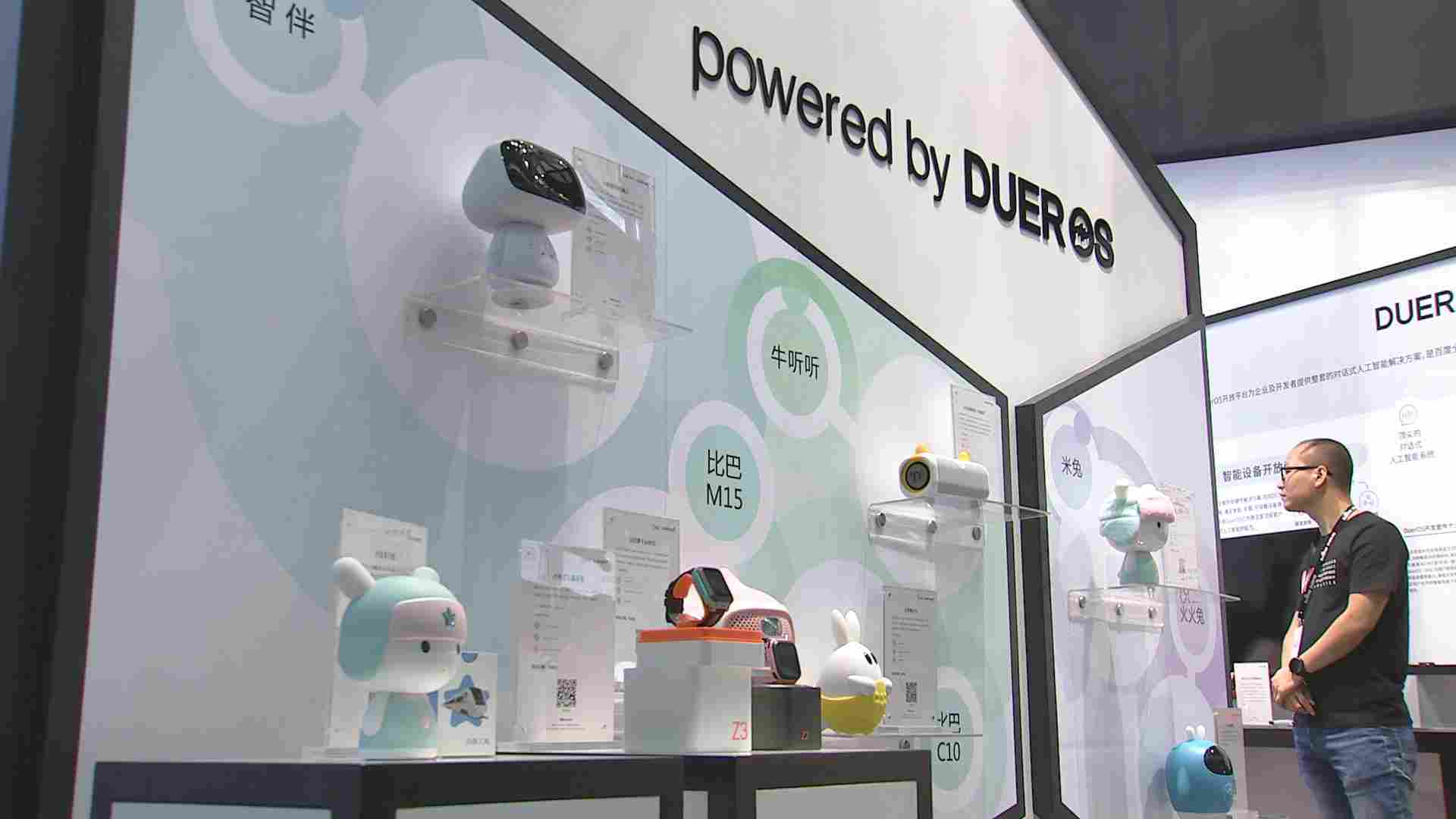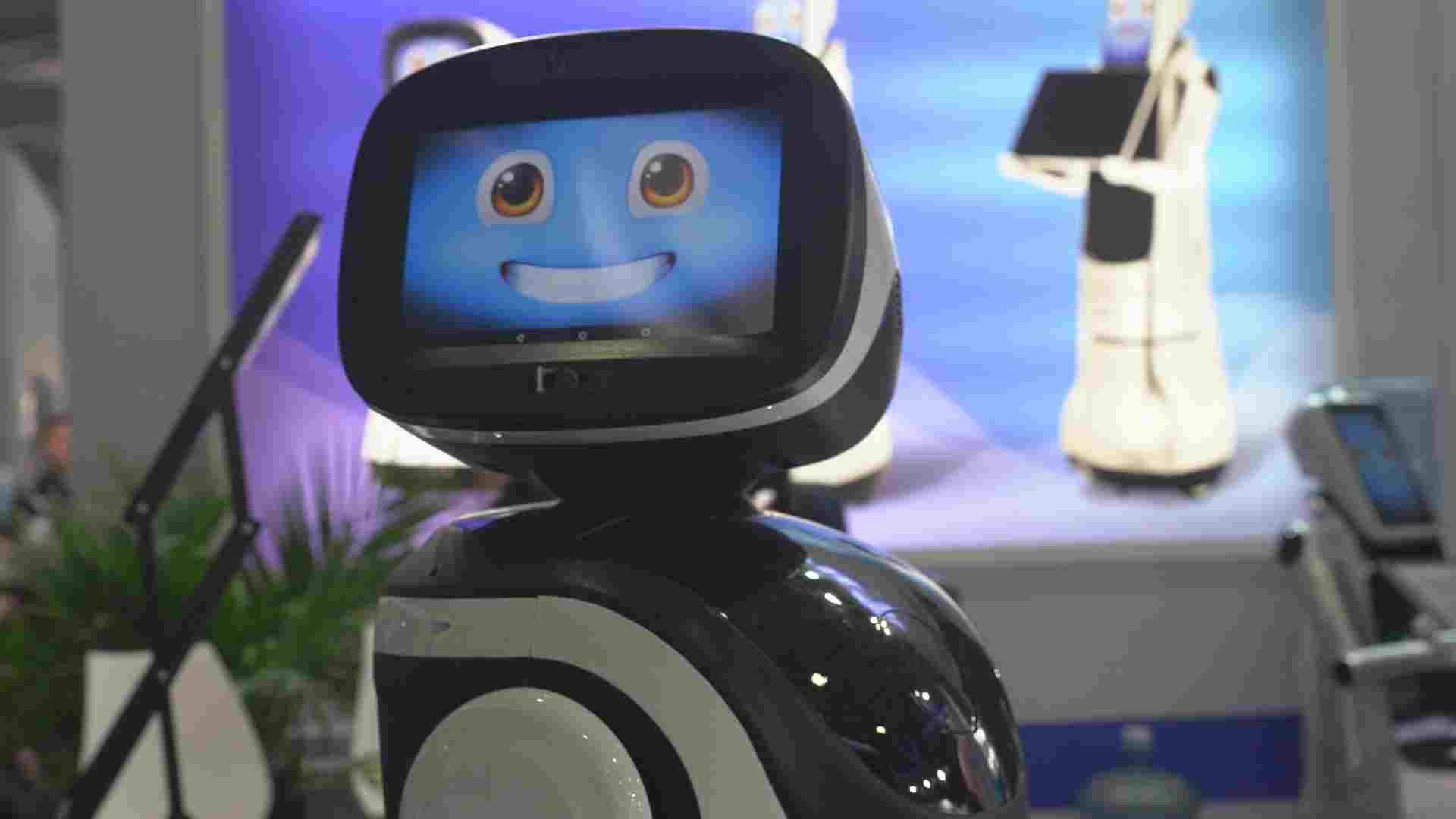
Technology
23:02, 13-Jun-2018
Asia’s largest consumer electronics show kicks off in Shanghai
By CGTN’s Wu Lei, Li Siqi & Shen Langlang
02:38

The 2018 Consumer Electronics Show (CES) Asia kicked off in east China's Shanghai on Wednesday. Over 500 companies are taking part in the three-day show.
This year’s CES Asia features some 20 product categories. Generating the most buzz is artificial intelligence (AI), a technology that’s changing lives around the world.

Traditional consumer electronics makers such as Changhong, the second-largest television manufacturer in China, have embraced AI to make their products better. /CGTN Photo
Traditional consumer electronics makers such as Changhong, the second-largest television manufacturer in China, have embraced AI to make their products better. /CGTN Photo
Li Xiaodong, Changhong’s corporate communication head, told CGTN that based on big data, deep machine learning and AI, their traditional home appliance companies have to keep up with trends and meet growing market demand.
At the CES this year, there is an area specially dedicated to AI, and over 30 companies have their latest products and innovations on display. China's Internet giant Baidu is one of those firms.

Baidu has brought their AI solution to the smart home sector. /CGTN Photo
Baidu has brought their AI solution to the smart home sector. /CGTN Photo
AI can be applied to every aspect of our daily lives in smart homes, self-driving cars, smart cities and so forth. But exhibitors say there is still much to be improved in the user experience side.
Chai Liangzhi, product manager of Allwinner Technology Co. Ltd., said one of the major challenges is whether the company can make the user experience as smooth as possible. So far there is still much to do in the field of photo and voice recognition.
The Consumer Technology Association’s President and CEO, Gary Shapiro said both Chinese and US companies are leading in the world's AI innovation and development.

Experts say making breakthroughs to bring the AI industry to a higher level takes time. /CGTN Photo
Experts say making breakthroughs to bring the AI industry to a higher level takes time. /CGTN Photo
Shapiro added that artificial intelligence is very good at specific tests, but it is much more difficult and challenging to think on its own, to draw conclusions and to move on to the next level of intellect, which is where it could have a breakthrough in the next few years or 20 to 30 years. "No one really knows. We are not just there yet."
He also expressed his hope for AI companies from both China and the US to cooperate more to tackle challenges. "That’s something the show’s expected 40,000 visitors would love to see."

SITEMAP
Copyright © 2018 CGTN. Beijing ICP prepared NO.16065310-3
Copyright © 2018 CGTN. Beijing ICP prepared NO.16065310-3